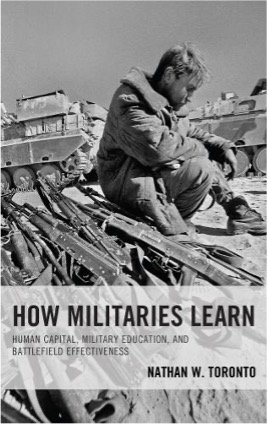Military advising stands at a moment of opportunity. Drawing down from two wars where military advising figured prominently, but where the nation did not achieve political victory, provides an opening. This opening is to reflect on how the United States can reform military advising efforts to have a strategic effect, rather than achieving short-term tactical or operational gains that do not bear up under the weight of the overarching political conflict. The likelihood of having deployments on the scale of Iraq and Afghanistan is low in the near term, so we can expect military advisors to be at the forefront for the foreseeable future. In other words, if we want to win the next war, we need to learn to advise more effectively.
A recent training exercise with the 3rd Security Force Assistance Brigade (3rd SFAB) gave me an opportunity to ask, “How does the Army know when an advisor is ready to deploy?” Sent to Fort Hood, TX, by Motive International, for four hours I drew on my experience embedded with the armed forces of the United Arab Emirates to share lessons on having a strategic effect while advising Arab partner forces.
I pointed out that drawing down from Iraq and Afghanistan provides an opening to reflect on how the United States can reform military advising efforts to have a strategic effect. Some possible lessons include recognizing partners’ sense of political empowerment; appreciating that, while friendships are genuine, the mission is sometimes transactional; and understanding that partner forces only gain professional competence in the long term.
These discussions were fruitful, with one officer commenting that he’d never considered the factors that contribute to a military force becoming professional. Many of the soldiers present will likely deploy to the Middle East, so these lessons will serve them well. I was very glad to make a positive impact, but the course I taught lasted only four hours, a drop in the bucket compared to a deployment training schedule lasting months. When I asked what the rest of the training schedule entailed, I learned that SFABs are often prepared for deployment like brigade combat teams, with live-fire maneuvers and gunnery qualification. I do not doubt that these skills are important—they are soldiers, after all—but the imbalance between this combat emphasis and the cultural, linguistic, and partnering insights I shared for a mere four hours left a pit at the bottom of my stomach.
Achieving Strategic Effect
I have never been a tactical military advisor, but I did help establish a defense college in the Middle East and I’ve been studying military professionalism for twenty years. I also wrote a book called How Militaries Learn, whose cover image shows one of the last Soviet soldiers to leave Afghanistan, a fitting image for our own day and time. Based on this research, there are at least three ways that the U.S. military could exploit this opportunity to rethink advising and partnering with foreign forces.
● Cultivate the science of military professionalism. Scholars have created a voluminous literature on military professionalism, and the U.S. military can build on this body of work to understand the challenges of advising foreign forces at a more theoretical level. This offers the prospect of moving beyond teaching how-to courses on advising to developing a conceptual framework for effective advising. The government has the wherewithal to build on existing knowledge so that military advisors do more than simply “get smart” before they deploy.
● Develop military advisor deployment training requirements. Training in combined arms maneuver may not be the most effective way to prepare military advisors for deployment. After Iraq and Afghanistan, a wealth of knowledge exists in the general purpose force on how to advise effectively, and Special Operating Forces have been preparing warfighters for advising deployments for decades. If stakeholders from across the government gathered in a room, the U.S. military could at least get closer to answering the question, “How do I know a good advisor when I see one?”
● Incentivize military advising talent. Soliciting volunteers is unlikely to sustain the talent throughput necessary to achieve strategic effects in military advising. Without a firm grasp of what kinds of people succeed in partnering and advising environments, the military runs the risk of misappropriating its talent. If the military knew what it needed on these missions, it could target individuals with these skills and incentivize their career development with dedicated career paths and command billet alignments. Advising foreign forces can be incredibly frustrating, but it is also incredibly rewarding, so it behooves the U.S. military to identify and commit those individuals that would thrive as advisors.
Looking ahead to the next war involves reflecting on our advising efforts so far and making them better. Reforming the way a military thinks is never easy, so I have every expectation that rethinking security force assistance will be no walk in the park. We owe it to our nation and our partners to make an honest effort, though. Cultivating the science of military professionalism, developing military advisor deployment training requirements, and incentivizing military advising talent is a good way to start.
Nathan Toronto is founder of the Emory Upton Institute for Military Analysis and author of How Militaries Learn: Human Capital, Military Education, and Battlefield Effectiveness. He is also a data scientist and science fiction author.


